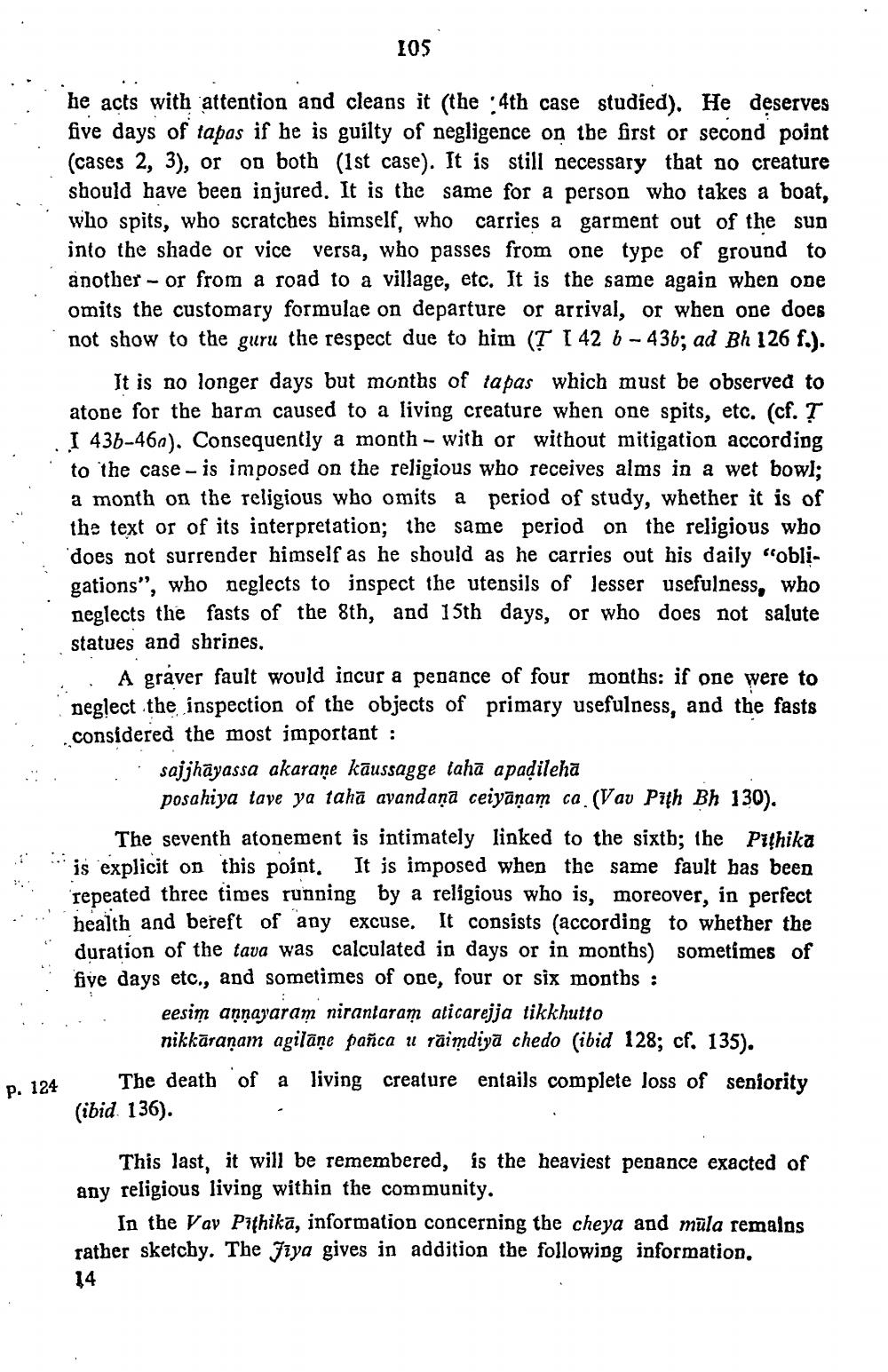________________
105
he acts with attention and cleans it (the : 4th case studied). He deserves five days of tapas if he is guilty of negligence on the first or second point (cases 2, 3), or on both (1st case). It is still necessary that no creature should have been injured. It is the same for a person who takes a boat, who spits, who scratches himself, who carries a garment out of the sun into the shade or vice versa, who passes from one type of ground to another - or from a road to a village, etc. It is the same again when one omits the customary formulae on departure or arrival, or when one does not show to the guru the respect due to him (T 1 42 6 - 436; ad Bh 126 f.).
It is no longer days but months of tapas which must be observed to atone for the harm caused to a living creature when one spits, etc. (cf. ? ...I 436-469). Consequently a month - with or without mitigation according
to the case - is imposed on the religious who receives alms in a wet bowl; a month on the religious who omits a period of study, whether it is of the text or of its interpretation; the same period on the religious who does not surrender himself as he should as he carries out his daily “obligations", who neglects to inspect the utensils of lesser usefulness, who neglects the fasts of the 8th, and 15th days, or who does not salute statues and shrines.
A graver fault would incur a penance of four months: if one were to neglect the inspection of the objects of primary usefulness, and the fasts considered the most important :
sajjhāyassa akarane kāussagge taha apadilena
posahiya taye ya taha avandanā ceiyāṇam ca (Vav Pith Bh 130). The seventh atonement is intimately linked to the sixth; the Pithika is explicit on this point. It is imposed when the same fault has been repeated three times running by a religious who is, moreover, in perfect
and bereft of any excuse. It consists (according to whether the
on of the tava was calculated in days or in months) sometimes of five days etc., and sometimes of one, four or six months :
eesim annayaram nirantaram aticarejja tikkhutto
nikkāraṇam agilāne pañca u räimdiya chedo (ibid 128; cf. 135). The death of a living creature entails complete loss of seniority (ibid. 136).
i
P. 124
This last, it will be remembered, is the heaviest penance exacted of any religious living within the community.
In the Vay Pithikā, information concerning the cheya and mula remains rather sketchy. The Jiya gives in addition the following information, 14




